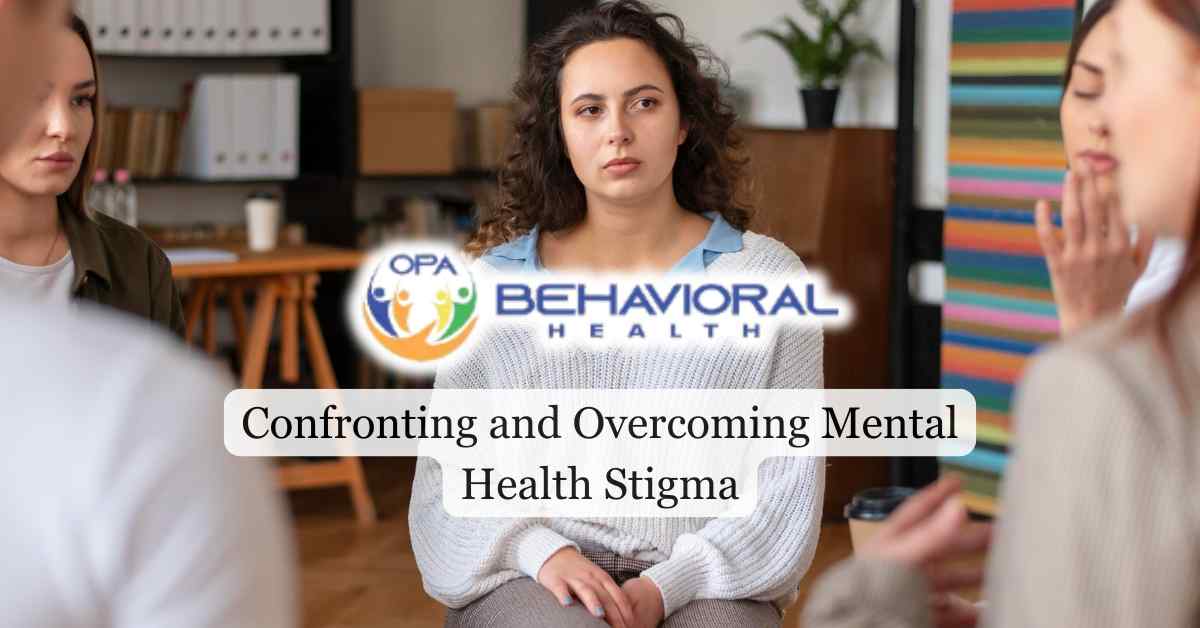In a world where physical ailments often receive sympathy and support, mental health conditions still face an invisible barrier of misunderstanding and prejudice. Despite significant advances in our understanding of mental health disorders and their treatments, the stigma surrounding these conditions remains a formidable challenge. The stigma silently discourages those struggling from seeking help, isolates individuals from their support networks, and perpetuates a cycle of shame and secrecy that can worsen mental health issues.
This article aims to shed light on the nature of mental health stigma, its far-reaching impacts, and, most importantly, the strategies we can employ to confront and overcome it.

Understanding Mental Illness
Mental illness encompasses health problems that affect your emotional, psychological, and social well-being, similar to conditions like cancer and diabetes.
It’s more prevalent than you might think, with approximately 1 in 5 adults experiencing mental illness annually.
Various factors contribute to mental illness, including genetic predisposition, biological influences, childhood trauma, stress, and environmental injustice.
The stigma surrounding mental illness creates barriers to diagnosis and treatment, often leading to discrimination and feelings of hopelessness.
If you’re prepared to take the first step to treating your mental health issues, we encourage you to contact us. Check out the most convenient location for you:
Our compassionate staff and providers are located across Florida, offering a supportive, personalized approach tailored to your specific needs.
The Impact of Mental Health Stigma
Public stigma leads to discrimination, causing individuals with mental health conditions to face social isolation, which can worsen their symptoms and discourage them from seeking help.
You may internalize these negative attitudes, resulting in self-stigma that erodes your self-esteem and increases the risk of suicidal thoughts. Mental health stigma can also limit your employment prospects and access to quality healthcare.
The fear of judgment and misunderstanding from others due to mental health stigma can make you less likely to seek the help you need, hindering your participation in treatment. This reluctance to reach out for support can prolong your suffering and delay your recovery process.
Confronting mental health stigma is crucial to fostering an environment where you feel empowered to prioritize your well-being without fear of repercussions.
Education and Awareness
By prioritizing education and raising awareness, we can create a society that embraces open dialogue about mental health, encourages support, and ultimately breaks down the barriers of stigma.
It’s crucial to share facts and statistics that highlight the prevalence of mental illness, as 1 in 5 adults experience it annually. Public campaigns can effectively dispel myths and increase the visibility of mental health issues within communities. Engaging youth through targeted initiatives and personal stories from individuals with lived experiences empowers help-seeking behaviors and reduces stigma.
Continuous learning opportunities, such as workshops and seminars, further promote supportive environments for individuals affected by mental health conditions.

The Role of Media in Reducing Stigma
The way mental illness is portrayed in news, entertainment, and social media can either perpetuate stigma or foster understanding.
When media representations of mental illness are accurate and respectful, they help reduce misconceptions and challenge stereotypes. Campaigns that feature personal stories and testimonials from individuals with lived experiences are particularly effective in promoting empathy and reducing stigma-related attitudes among audiences.
By responsibly reporting on mental health issues and amplifying the voices of those who’ve faced them, media outlets can contribute to a more informed and compassionate society. When influential figures in media engage in mental health advocacy, they can dramatically expand outreach and encourage positive discussions around the topic.
Through responsible and sensitive media coverage, we can create an environment where seeking help for mental health is normalized and supported, ultimately leading to a stigma-free future.
Personal strategies for Overcoming Self-Stigma
It’s essential to recognize that mental illness is a health condition, just like physical ailments, and seeking treatment is a sign of strength, not weakness.
Challenging negative attitudes and self-doubt can be difficult, but it’s crucial for overcoming self-stigma.
Engage in support networks and social connections to foster a sense of belonging and understanding among individuals facing similar challenges.
Using respectful language when discussing mental health can influence your personal attitudes and promote a more positive self-view.
Participating in support groups allows you to share experiences and learn from others, empowering you to take a proactive approach to mental health care.
Final Thoughts from OPA Behavioral Health
Overcoming mental health stigma requires a collective effort from individuals, communities, and society as a whole. By promoting acceptance, empathy, and understanding, we can create a more supportive and inclusive environment for those experiencing mental health challenges. At OPA Behavioral Health, we are dedicated to being a part of this positive transformation. Our skilled and compassionate providers throughout Florida recognize the significance of fostering a stigma-free environment where individuals feel secure and encouraged to seek the care they require.








